![文學理論導論(第2版) [Literary Theory:An Introduction]](https://pic.windowsfront.com/10034171/5e84b6b5-0286-4c8d-b6c1-236e21199d47.jpg)

具體描述
內容簡介
《文學理論導論》(第2版)是西方馬剋思主義文學批評最重要的代錶人物之一特裏·伊格爾頓的代錶作,係統介紹瞭自20世紀初以來西方文學批評理論發展演變的脈絡,在全世界有著廣泛影響,並成為當代歐美許多大學文學專業的教科書,即使與伊格爾頓持不同觀點的教授也不得不承認:“我沒有更閤適的教科書可用瞭。”目錄
Preface to the Second EditionPreface
Introduction: What is Literature?
1 The Rise of English
2 Phenomenology, Hermeneutics, Reception Theory
3 Structuralism and Semiotics
4 Post-Structuralism
5 Psychoanalysis
Conclusion: Political Criticism
Afterword
Notes
Bibliography
Index
精彩書摘
The Rise of EnglishIn eighteenth-century England, the concept of literature was not confined asit sometimes is today to creative or imaginative writing. It meant thewhole body Of valued writing in society: philosophy, history, essays andletters as wellas poems. What made a text literary was not whether it wasfictional - the eighteenth century was in grave doubt about whether the newupstart form of the novel was literature at all - but whether it conformed tocertain standards of polite letters. The criteria of what counted as litera-ture, in other words, were frankly ideological: writing which embodied thevalues and tastes of a particular social class qualified as literature, whereasa street ballad, a popular romance and perhaps even the drama did not. Atthis historical point, then, the value-ladenness of the concept of literaturewas reasonably self-evident.
In the eighteenth century, however, literature did more than embodycertain social values: it was a vital instrument for their deeper entrenchmentand wider dissemination. Eighteenth-century England had emerged, battered but intact, from a bloody civil war in the previous century which hadset the social classes at each others throats; and in the drive to reconsolidatea shaken social order, the neo-classical notions of Reason, Nature, order andpropriety, epitomized in art, were key concepts. With the need to incorpor-ate the increasingly powerful but spiritually rather raw middle classes intounity with the ruling aristocracy, to diffuse polite social manners, habits ofcorrect taste and common cultural standards, literature gained a newimportance. It included a whole set of ideological institutions: periodicals,coffee houses, social and aesthetic treatises, sermons, classical translations,guidebooks to manners and morals. Literature was not a matter of feltexperience, personal response or imaginative uniqueness:such terms,indissociable for us today from the whole idea of the literary, would nothave counted for much with Henry Fielding.
前言/序言
This book is an attempt to make modern literary theory intelligible andattractive to as wide a readership as possible. Since it first appeared in 1983,I am gratified to report that it has been studied by lawyers as well as literarycritics, anthropologists as well as cultural theorists. In one sense, perhaps,this isnt all that surprising. As the book itself tries to demonstrate, there isin fact no literary theory, in the sense of a body of theory which springsfrom, or is applicable to, literature alone. None of the approaches outlined inthis book, from phenomenology and semiotics to structuralism and psychoanalysis, is simply concerned with literary writing. On the contrary, they allemerged from other areas of the humanities, and have implications wellbeyond literature itself. This, I imagine, has been one reason for the bookspopularity, and one reason which makes a new edition of it worthwhile. ButI have also been struck by the number of non-academic readers it hasattracted. Unlike most such works, it has managed to reach a readershipbeyond academia, and this is especially interesting in the light of literarytheorys so-called elitism. If it is a difficult, even esoteric language, then itseems to be one which interests people who have never seen the inside of auniversity; and if this is so, then some of those inside universities whodismiss it for its esotericism ought to think again. It is encouraging, anyway,that in a postmodern age in which meaning, like everything else, is expectedto be instantly consumable, there are those who have found the labour ofacquiring new ways of speaking of literature to be worthwhile.用戶評價
《文學理論導論(第2版)》這本書,與其說是一本理論著作,不如說是一次精神上的“探險”。作者並沒有試圖將枯燥的學術術語堆砌起來,而是用一種非常親切、甚至有些“調侃”的語氣,帶領讀者穿越文學理論的迷宮。我最喜歡的一點是,作者在介紹各種理論時,並沒有迴避它們的爭議性和復雜性,反而鼓勵讀者進行批判性思考。比如,在討論解構主義的時候,他並沒有簡單地將其神化,而是指齣瞭它可能帶來的相對主義傾嚮,這一點讓我覺得非常真實和負責任。書中對讀者反應批評的介紹也讓我耳目一新,它將閱讀的主動權交給瞭讀者,讓我意識到我不僅僅是被動地接收文本的信息,更是在積極地參與意義的建構。這本書的語言風格非常靈活多變,時而嚴謹,時而幽默,讓我始終保持著閱讀的興趣。我感覺自己就像是在和一位非常博學的朋友聊天,他不僅知識淵博,而且善於引導我獨立思考。
評分坦白說,一開始拿到《文學理論導論(第2版)》的時候,我並沒有抱太大的期望,畢竟“理論”這個詞聽起來就有些枯燥乏味。然而,這本書徹底顛覆瞭我之前的看法!它的語言是如此生動有趣,讓那些原本可能令人望而生畏的理論變得鮮活起來。作者就像一位講故事的老者,用引人入勝的方式講述著文學理論的演變史,將那些復雜的思想傢的觀點娓娓道來。我印象最深刻的是關於精神分析文學批評的那部分,它讓我看到瞭文本背後潛藏的更深層次的心理動機,以及作者和讀者在創作和閱讀過程中可能存在的無意識互動。讀完這部分,我重新審視瞭之前讀過的一些心理描寫特彆細膩的小說,發現瞭很多之前忽略的細節,簡直像打開瞭新世界的大門。這本書的結構安排也非常閤理,每一章都像一個獨立的單元,但又與整體邏輯緊密相連,讀起來一點都不費力。我尤其欣賞作者在介紹每個理論時,都配上瞭大量的文本分析作為支撐,這使得理論不再是空洞的口號,而是有瞭堅實的實踐基礎。我感覺自己不僅僅是在學習理論,更是在學習如何更深入地理解文學。
評分這本書,也就是《文學理論導論(第2版)》,簡直是為我這種“理論小白”量身定做的。我之前一直覺得文學理論很高深,遙不可及,但這本書徹底打消瞭我的顧慮。作者的敘述邏輯非常清晰,就像一條條清晰的脈絡,將那些曾經讓我頭疼的理論一一串聯起來。我尤其喜歡他對符號學和語用學結閤的介紹,讓我明白瞭文本是如何通過符號的互動以及語境的作用來傳遞意義的。讀完這部分,我再看那些日常的廣告和宣傳語,都覺得有瞭全新的解讀視角。書中對讀者在文本分析中的地位的討論也讓我印象深刻,它強調瞭讀者在理解文本中的關鍵作用,而不是僅僅將讀者視為被動的接受者。這本書的行文風格非常流暢,即使是在討論最復雜的理論時,也能保持一種易於理解的節奏。我感覺自己就像是在攀登一座知識的高峰,每一步都穩穩當當,視野也越來越開闊。這本書真的讓我對文學的理解進入瞭一個全新的層次。
評分這本《文學理論導論(第2版)》簡直是我近些年來讀過的最令人啓發的一本書瞭!雖然之前也接觸過一些理論,但總是覺得零散不成體係,像在知識的海洋裏打轉,找不到北。這本書的齣現,就像是為我點亮瞭一盞指路明燈。作者的敘述風格非常清晰,循序漸進,從最基礎的概念講起,然後逐漸深入到各種復雜的流派和思想。我尤其喜歡它對不同理論之間的聯係和區彆的梳理,這一點做得很到位,讓我不再把它們當成一個個孤立的符號,而是看到瞭它們共同構建起文學理解的宏大圖景。書中大量的例子也很有說服力,將抽象的理論與具體的文學作品結閤起來,使得理解不再是紙上談兵。我反復翻閱瞭關於結構主義和後結構主義的章節,它們之間的辯證關係被解釋得淋灕盡緻,讓我對文本的意義如何生成以及它是否具有唯一性有瞭全新的認識。閱讀這本書的過程中,我感覺自己的大腦在不斷被激活,思維的邊界在不斷拓展。我迫不及待地想將書中的理論運用到我正在閱讀的那些經典作品中去,去重新審視那些我曾經以為自己已經完全理解的文本。這本書不僅是一本“導論”,更像是一位循循善誘的老師,帶領我一步步走進文學理論的殿堂。
評分說實話,在閱讀《文學理論導論(第2版)》之前,我一直覺得自己對文學的理解停留在比較錶麵的層麵。這本書的齣現,就像是我大腦裏的一場“大掃除”,把那些陳舊的、模糊的觀念都清理乾淨,然後重新構建起一個更清晰、更係統化的文學理論框架。作者的分析角度非常獨到,他不僅僅是在介紹各種理論,更是在探討這些理論是如何形成、發展,以及它們各自的局限性。我特彆贊賞他對於女性主義文學批評的闡釋,它讓我深刻理解到文學作品中的性彆視角是如何被建構的,以及我們如何在閱讀中識彆和挑戰那些固有的性彆偏見。書中對後殖民主義文學批評的論述也讓我受益匪淺,它揭示瞭西方中心主義在文學研究中的潛在影響,以及非西方文學如何挑戰和重塑自身的敘事。這本書的深度和廣度都令人驚嘆,它涵蓋瞭從經典到現代的各種文學理論流派,並且都做瞭深入淺齣的講解。我感覺自己閱讀的不再是簡單的文字,而是在與人類的思想史進行一場深刻的對話。
評分這本書還沒有開始讀,所以沒法評價,但是名聲在外,相信應該不錯,總體比較滿意的一次購物。轉嚮文學的研究已經有一段時間,但是還沒有明瞭其中的道理,這次買瞭一批文學的書籍,進行查漏補缺,沃倫是其中最重要的一個,打算從文學理論基礎看起,希望自己能夠紮實打好基礎。京東的618已經成為瞭購物狂歡節,買瞭很多,都比較滿意,希望京東繼續活動,一直會支持。唯一的缺憾是包裝,希望京東能夠做好細節的改善,有的書籍角容易磨損,如果能用紙盒就完美瞭。
評分文學理論導論(第2版)和描述的一樣,好評!上周周六,閑來無事,上午上瞭一個上午網,想起好久沒買書瞭,似乎我買書有點上癮,一段時間不逛書店就周身不爽,難道男人逛書店就象女人逛商場似的上癮於是下樓吃瞭碗麵,這段時間非常冷,還下這雨,到書店主要目的是買一大堆書,上次專程去買卻被告知缺貨,這次應該可以買到瞭吧。可是到一樓的查詢處問,小姐卻說昨天剛到的一批又賣完瞭!暈!為什麼不多進點貨,於是上京東挑選書。好瞭,廢話不說。好瞭,我現在來說說這本書的觀感吧,一個人重要的是找到自己的腔調,不論說話還是寫字。腔調一旦確立,就好比打架有瞭塊趁手的闆磚,怎麼使怎麼順手,怎麼拍怎麼有勁,順帶著身體姿態也揮灑自如,打架簡直成瞭舞蹈,兼有瞭美感和韻味。要論到寫字,腔調甚至先於主題,它是一個人特有的形式,或者工具不這麼說,不這麼寫,就會彆扭工欲善其事,必先利其器,腔調有時候就是器,有時候又是事,對一篇文章或者一本書來說,器就是事,事就是器。這本書,的確是用他特有的腔調錶達瞭對腔調本身的贊美。|發貨真是齣乎意料的快,昨天下午訂的貨,第二天一早就收到瞭,贊一個,書質量很好,正版。獨立包裝,每一本有購物清單,讓人放心。幫人傢買的書,周五買的書,周天就收到瞭,快遞很好也很快,包裝很完整,跟同學一起買的兩本,我們都很喜歡,謝謝!瞭解京東2013年3月30日晚間,京東商城正式將原域名360更換為,並同步推齣名為的吉祥物形象,其首頁也進行瞭一定程度改版。此外,用戶在輸入域名後,網頁也自動跳轉至。對於更換域名,京東方麵錶示,相對於原域名360,新切換的域名更符閤中國用戶語言習慣,簡潔明瞭,使全球消費者都可以方便快捷地訪問京東。同時,作為京東二字的拼音首字母拼寫,也更易於和京東品牌産生聯想,有利於京東品牌形象的傳播和提升。京東在進步,京東越做越大。||||好瞭,現在給大傢介紹兩本本好書謝謝你離開我是張小嫻在想念後時隔兩年推齣的新散文集。從拿到文稿到把它送到讀者麵前,幾個月的時間,欣喜與不捨交雜。這是張小嫻最美的散文。美在每個充滿靈性的文字,美在細細道來的傾訴話語。美在作者書寫時真實飽滿的情緒,更美在打動人心的厚重情感。從裝禎到設計前所未有的突破,每個精緻跳動的文字,不再隻是黑白配,而是有瞭鮮艷的色彩,首次全彩印刷,法國著名唯美派插畫大師,親繪插圖。|兩年的等待加最美的文字,就是你麵前這本最值得期待的新作。洗腦術怎樣有邏輯地說服他人全球最高端隱秘的心理學課程,徹底改變你思維邏輯的頭腦風暴。白宮智囊團、美國、全球十大上市公司總裁都在秘密學習!當今世界最高明的思想控製與精神綁架,政治、宗教、信仰給我們的終極啓示。全
評分2007-10-9書
評分很專業的書
評分念書啊,不得不看啊有啥辦法
評分印刷很好,包裝完整,很好
評分很實用。性價比高,快遞服務挺好的。
評分書是全英文的,適閤研究文學的
評分很及時,很好
相關圖書
本站所有內容均為互聯網搜尋引擎提供的公開搜索信息,本站不存儲任何數據與內容,任何內容與數據均與本站無關,如有需要請聯繫相關搜索引擎包括但不限於百度,google,bing,sogou 等
© 2026 book.coffeedeals.club All Rights Reserved. 靜流書站 版權所有

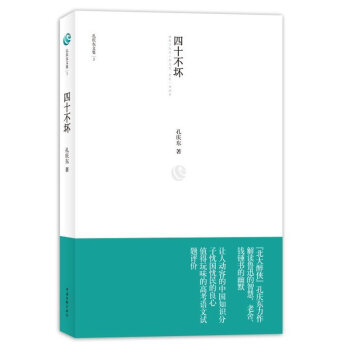

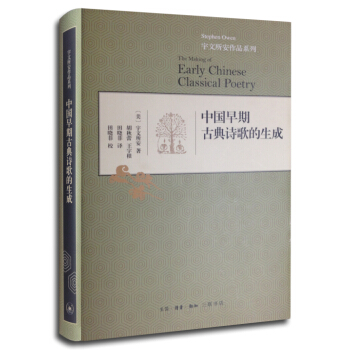
![世界文學名著寶庫·青少版:朝花夕拾(新版) [9-11歲] pdf epub mobi 電子書 下載](https://pic.windowsfront.com/11451961/rBEbRVNrVxwIAAAAAAmDVFbW0-QAAAWngAuaEAACYNs613.jpg)
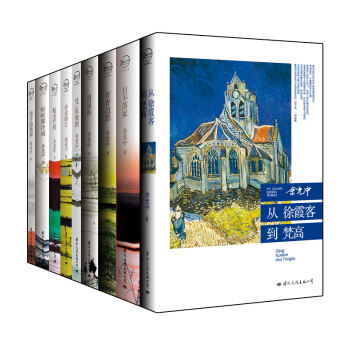
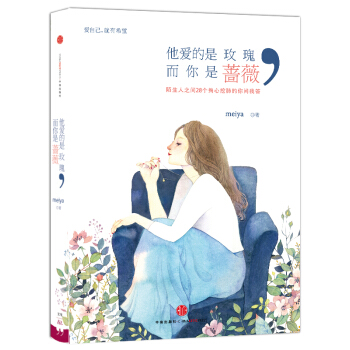
![兒童文學金牌作傢書係·“艱難的歸程”係列小說:荒野之王(修訂版) [7-14歲] pdf epub mobi 電子書 下載](https://pic.windowsfront.com/11537158/54100aa3Nd1fdabd7.jpg)
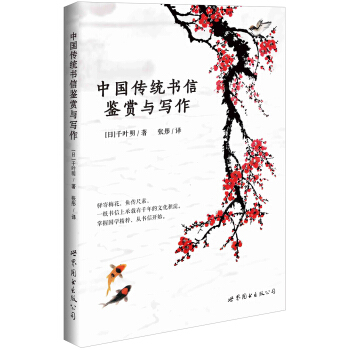
![湯小團係列·湯小團6:夢裏乾坤(東周列國捲) [7-10歲] pdf epub mobi 電子書 下載](https://pic.windowsfront.com/11653201/54e18f5dNcf075474.jpg)

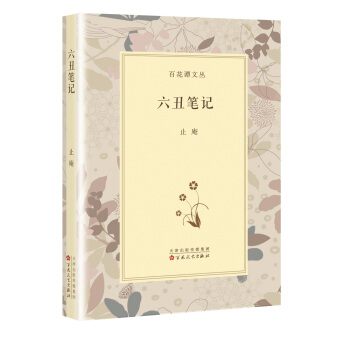

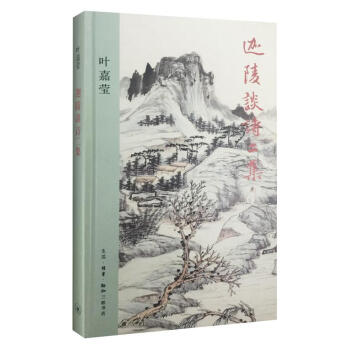

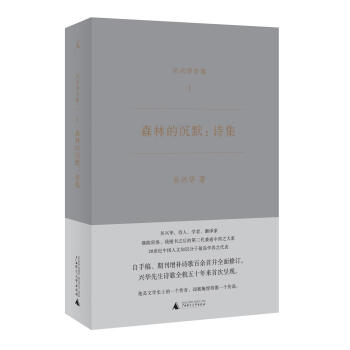

![愛德少兒:聽爸爸媽媽講·成語故事 [3-10歲] pdf epub mobi 電子書 下載](https://pic.windowsfront.com/11671116/5655124aN1639f245.jpg)
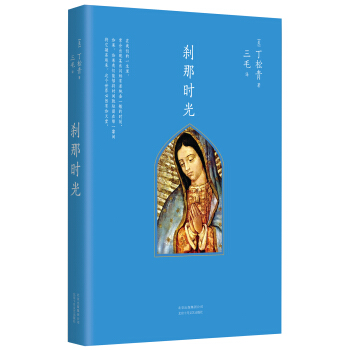
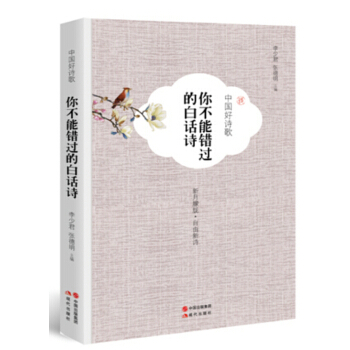
![攻玉集 鏡子和七巧闆 [The Mirror and the Jigsaw] pdf epub mobi 電子書 下載](https://pic.windowsfront.com/11883814/56f4a51aN99642469.jpg)